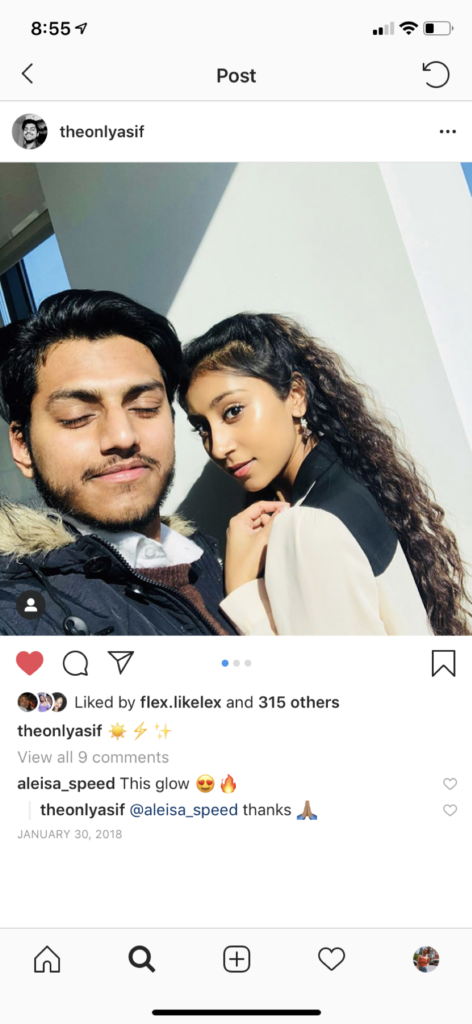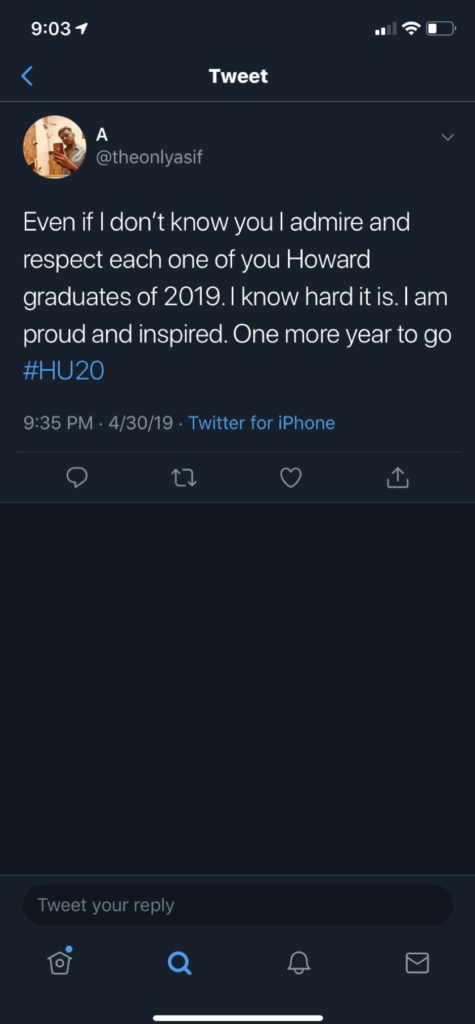By Alexsis Simmons
When Asif Mohiuddin came from Dhaka, Bangladesh, in fall 2016 to study at Howard University, he wasn’t sure what to expect. Mohiuddin, an aspiring chemical engineer, knew that study in the United States gave him access to networking opportunities, conferences and a variety of professional experiences. In Bangladesh, students who study abroad are considered the brightest stars of their generations. Mohiuddin always knew he would come to the United States.

“My parents had planted the seed in my head of studying abroad, Mohiuddin said. “Many parents in Bangladesh want their children to get the best education. I wanted a new experience. I was frightened and excited at the same time. I was scared I would not meet people or would not make friends in class.”
Mohiuddin grew up in a very homogenic and ethic culture, so he never thought about the diversity within the Muslim community.

As an international student, Mohiuddin he is award of the cultural differences. He has seen how Americans take things, like access to education, for granted, Mohiuddin said, “Many countries do not have the large access to education like the United States. No matter the poverty level, students in America have no choice in whether or not they go to school...they just go.”
The Open Doors Report found that 7,000 students from Bangladesh were studying in the United States for the 2018-2019 academic year, a 10% growth from the previous year. But study abroad isn’t for everyone. According to the U.S. Embassy in Bangladesh, a candidate for study abroad in the U.S. must have solid financial support, a strong educational background and excellent English language skills.
They must also be ready to experience diversity American-style. At Howard, Mohiuddin found that unlike the comfortable homogeneity of Bangladesh, he became hyper aware of his ethnicity. His friend, Saliha Syeda, 19, also from Bangladesh, had similar experiences. “Not that there is a certain look, but I have definitely had people ask me what’s my ethnicity. I have had people say ‘oh you look so exotic.’ It's hard to blend when there isn’t a lot of us on campus,” Syeda said.
Even though Mohiuddin has managed to make his way at the HBCU sometimes he wearies of the stereotype of being a model minority that Asian students sometimes face on any campus. “Especially because I look Asian. They think because you’re Asian that you know everything in the class so they think they can cheat off of my paper,” Mohiuddin said.
At the end of his freshman year, he ventured beyond campus, and began to make connections and friendships throughout The District. While walking along Dupont Circle, he met Navya Kanderi, a second-generation immigrant also attending Howard University. They struck up conversation and Kanderi told him about her experience as a South Asian student going to a historically black university. Mohiuddin became so interested in what Howard had to offer and decided to venture out of his comfort zone.
Last spring, Mohiuddin joined the members of the South Asian Student Association at Howard University to put on a traditional Holi Festival for the Indian and Nepali students.
“Holi is a Hindu spring festival that is a large celebration back home,” he said. “We smear abeer (a colored powder) and spray water colors all over each other. The festival marks a triumph of good over evil. The traditions are ancient and have been with me ever since I was born. I was not willing to give that up simply for going to school in America,”
Navya Kanderi, who was born and raised in the United States, was excited to experience the festival at Howard. “The fact that I had to come to an HBCU to experience Holi for the first time is super cool and unique,” Kanderi said. “I was appreciative that they took into consideration our cultural traditions too.”
For Mohiuddin this cultural exchange is important for his development. Like many cultures, Bangladeshi place great emphasis on education and being the best. Bsut it is important for he and his family to fit in while he is here. Mohiuddin said that as long as he continues to be himself and allows his new friends to learn about his culture, he will be at home with himself.
